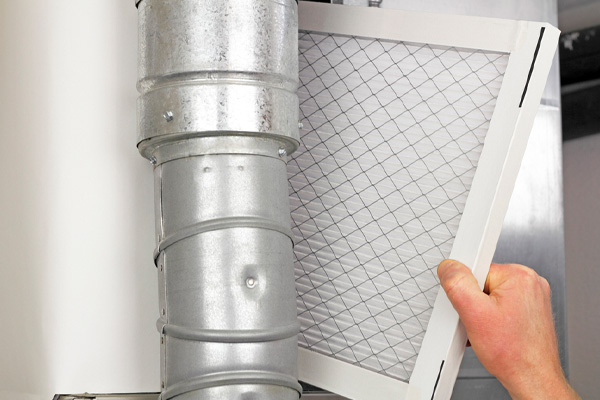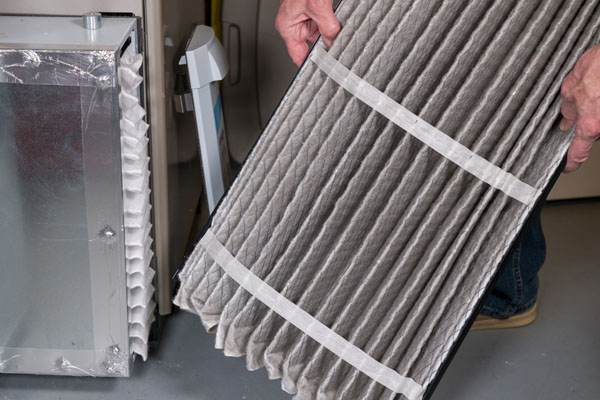
Pollutants can be found in each and every home. Although the harmful air particles are too small to see, their effects are palpable. If a household is worried about indoor air quality (IAQ), they should replace their air filters on a regular basis. Although some individuals follow the manufacturer’s advice, it is best to check once a month. Some households will need to change their HVAC air filters more frequently than the manufacturer recommends. They should also select HVAC air filters that are compatible with their system and residence. To determine the best match, look at the filter’s MERV rating. The MERV rating is a crucial aspect to consider when purchasing HVAC filters, as detailed in this article.
What Is A MERV Rating?
Table of Contents
- 1 What Is A MERV Rating?
- 1.1 How Do MERV Ratings Work?
- 1.2 How To Determine MERV Rating
- 1.3 MERV & Interior Air Quality
- 1.4 Energy Usage & MERV Ratings
- 1.5 How The HVAC Air Filter Affects The Performance Of Your HVAC System
- 1.6 Should You Purchase Air Filters With High MERV Ratings?
- 1.7 What Should The MERV Rating Of My HVAC Air Filter Be?
- 1.8 Conclusion
- 2 Call Skylands Energy Service For All Of Your HVAC Requirements
It might be confusing if you’ve never purchased air filters before. Almost every HVAC air filter on the market will boast about how great it is. If you do your homework, you’ll be able to tell which ones are inaccurate right away. Make an attempt to grasp the parameters and understand what the numbers mean. You will see the term “MERV,” which stands for Minimum Efficiency Reporting Value. This is an important parameter for analyzing whether or not an air filter can catch dangerous particles. A higher MERV rating indicates better filtering capability.
How Do MERV Ratings Work?

The MERV scale has a range of 1 to 20. While a higher MERV rating is preferred, some applications will necessitate a MERV rating in the middle of the spectrum. Air filters with MERV ratings of 16 to 20 are frequently used in high-demand areas such as clean rooms, hospitals, and nuclear power plants. The filters in most homes are rated from MERV 5 to 13. A MERV value of less than 5 will not be enough to maintain adequate indoor air quality. If the MERV rating of a residential HVAC system surpasses 13, its functionality may be compromised.
How To Determine MERV Rating
The MERV rating of a filter is determined by a series of tests. Numerous particles in 3 distinct size ranges are used in the process:
- E1 – 0.3 to 1.0 microns
- E2 – 1.0 to 3.0 microns
- E3 – 3.0 to 10 microns
They are not visible to us because our eyes cannot see anything smaller than 40 microns. Human hair, for example, has a diameter of about 50 microns. Fortunately, all of them can be identified using specialist laboratory equipment. The minute particles are sprayed into the filters and then counted. The MERV is determined by taking the lowest test score. In any event, it is supposed to determine the product’s “minimum efficiency.” A product must collect 95 percent or more of the particles to be classified as a MERV 16 filter.
MERV & Interior Air Quality
The quality of indoor air has a huge influence on the health and wellbeing of your family. If you have a lot of allergy reactions, you should use a filter with a higher MERV rating. This ought to eliminate more contaminants from the air, resulting in fewer allergy problems. Conditions such as fatigue, headaches, eye irritation, fatigue, rashes, sore throat, frequent sneezing, and a runny nose will be less prevalent. Dust and germs can be kept out of your house thanks to an upgraded air filter. Illnesses will be less common, and contagions will be a thing of the past. If there is an occupant with a weakened immune system or a respiratory disease, a high-MERV filter may be very advantageous.
Energy Usage & MERV Ratings
To collect many airborne particles, air filters must have smaller pores. The smaller the holes, the harder it is for even air to go through. The heating and cooling unit will require more energy to function properly. As a result, opting for MERV 20 in a home that has an HVAC system that isn’t capable of handling this level of filtration is a bad idea.
Energy bills will rise if nothing is done, and HVAC systems will malfunction sooner rather than later. Residential air filters typically have a MERV rating of 8 to 13. These are adequate for maintaining acceptable air quality while avoiding large increases in energy costs. Consult an HVAC specialist if you are unsure about which sort of HVAC filter is ideal for your house.
How The HVAC Air Filter Affects The Performance Of Your HVAC System

For air filters, each forced-air heating and cooling unit has a recommended MERV rating. Residents should rigorously follow the set parameters to prevent adverse effects. Low-rated HVAC air filters may be less expensive at first. However, they may result in costly system issues later on. Because of their low power, the air filters will be unable to trap contaminants. Bacteria and dust will accumulate in the ducts. The HVAC system’s efficiency will decline, while HVAC service prices go up. Exceeding the acceptable rating, on the other hand, may reduce airflow, increase wear, and lessen the lifespan of the unit.
Should You Purchase Air Filters With High MERV Ratings?
People prefer better ratings when it comes to product evaluations, hotel categories, and other factors. This normally results in better experiences, although it doesn’t always happen. Higher isn’t necessarily best with MERV ratings. Although high-MERV filters are more effective in keeping pet hair, bacteria, and pollen out of the system, they also impede air from flowing freely throughout it. Inadequate air circulation can decrease interior comfort, increase energy use, and increase monthly costs. You should make sure that you have the proper air filters for your system.
What Should The MERV Rating Of My HVAC Air Filter Be?
It’s hard to give precise solutions since each HVAC system is different. For more information, you should turn to the owner’s manual. For most homes, a filter with a MERV rating of 8 to 13 should be enough. They can eliminate most of the unwanted particles without overburdening the heating and cooling system. If everything functions optimally, you can achieve improved outcomes over time. In households with a few residents and no pets, a rating of MERV 8 should be adequate. If there are more people and a couple of pets, a rating of MERV 11 would be preferable. A MERV 13 filter may be necessary for health and well-being if there are people with weakened immune systems.
Conclusion
When it comes to air filters, the MERV rating is really important. When dealing with very small pollutants, it shows the worst-case condition. You don’t want low ratings since they imply a lack of air purification. High ratings aren’t usually the best option because they might pose issues with systems that aren’t compatible. Most households benefit from mid-range filters rated between MERV 8 and 13. An HVAC contractor can determine the best option using the specific circumstances of each home.
Call Skylands Energy Service For All Of Your HVAC Requirements
 Skylands Energy Service provides high-quality heating and cooling services in central New Jersey. Our team of qualified heating and air conditioning technicians can give you top-notch HVAC tune-ups, installation, repairs, and replacements. Each of our technicians has the expertise and experience necessary to adequately service your HVAC unit.
Skylands Energy Service provides high-quality heating and cooling services in central New Jersey. Our team of qualified heating and air conditioning technicians can give you top-notch HVAC tune-ups, installation, repairs, and replacements. Each of our technicians has the expertise and experience necessary to adequately service your HVAC unit.
Skylands Energy Service guarantees the most economical heating and cooling service prices in the area. Our maintenance services can help to enhance your comfort, increase energy efficiency, improve indoor air quality, and lower your house’s heating and cooling expenses. If you want HVAC repair or replacement, we can suggest the appropriate solution while keeping within your budget. We back all our work by a guarantee for your complete satisfaction. To schedule a service appointment, contact Skylands Energy Service today. We offer free, in-home estimates as well.
Contact us now at (908) 707-1776 to find out more!

